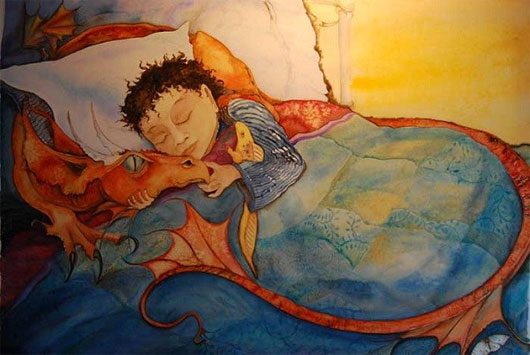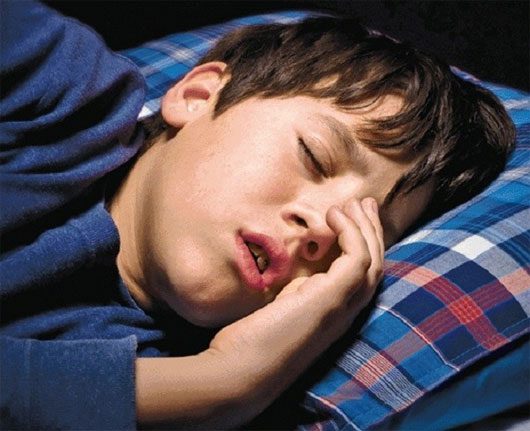According to experts, the change in light during the winter can affect our biological rhythm, so sleeping more may help you stay alert when your schedule requires you to go outside in the dark.
In cold weather, people tend to sleep more than usual. “If you want to sleep more in the winter, you are not alone,” says Dr. Raj Dasgupta, Associate Professor of Clinical Medicine at Huntington Memorial Hospital in Pasadena, California (USA).
He cites research showing that at least one-third of American adults report sleeping more in the winter.

Weather in general, and winter in particular, has a certain impact on people. (Illustrative image: USA Today).
Dasgupta, who is also the Associate Director of the Residency Program at Huntington, states: “The sleep needs of most adults range from seven to nine hours each night, and that remains stable regardless of how cold or dark it gets outside.”
“However, you often feel like you sleep more in the winter because we lose an hour of daylight when entering standard time. This is related to the darkness starting earlier.”
From the impacts…
Weather in general, and winter in particular, has a certain influence on people, from health to mental well-being. Sometimes the effects are not clear, but if you pay close attention to your sleep, you will be amazed at what you discover.

Specifically, Associate Professor Michael Decker from the University of Georgia, USA, has pointed out six fundamental and typical impacts of winter on our sleep.
First, the cold weather of winter makes people seek ways to keep warm while sleeping: using blankets, heaters, etc.
However, while sleeping, the body automatically regulates its temperature to balance with the room temperature. Therefore, if you use the heater too warmly, it is not good for sleep at all, as people sleep better and deeper when the weather is cool.
Second, the arrival of winter brings cold, gloomy weather, gray skies, and a lack of sunlight. This change causes people to experience circadian rhythm disruption, leading to a tendency to go to bed earlier and wake up later. This means that in winter, people want to sleep more compared to other seasons of the year.

Third, the biting cold of winter makes people consume energy faster, leading to frequent feelings of hunger and a tendency to eat more than usual. A hearty meal will help warm the body from the inside, but sleeping in that state can make you feel sluggish, bloated, and even cause insomnia.
Fourth, studies have shown that exercise promotes deeper sleep. However, in winter, people feel lazy, often tired, and do not want to exercise. This limits the ability to achieve good sleep for individuals.
Fifth, when it’s cold, getting out of bed every morning is not easy. That’s why in winter, the frequency of sleeping in on weekends significantly increases.

Winter makes us more prone to snoring.
Sixth, winter makes people snore more. The dry air reduces the humidity in the nose significantly. The natural reaction of the body is to open the mouth, leading to snoring. Additionally, the cold weather causes many people to suffer from runny noses, colds, and results in significant insomnia.
… to interesting scientific explanations…
What is the main cause of all the aforementioned impacts? Through various scientific studies, leading experts have found the answer.
According to them, in winter, the amount of light and heat the Earth receives from the Sun is less than usual. This shortens the duration of daylight and lengthens the duration of night. This phenomenon alters our biological clock in certain aspects.

On the other hand, human sleep is controlled by a brain hormone called melatonin. This hormone is produced by the pineal gland in response to the day-night cycle. Darkness increases melatonin production, signaling bedtime, while light reduces melatonin secretion, acting as our natural alarm clock.
In changing weather conditions, melatonin is secreted more in winter as darkness falls quickly, causing people to sleep more, and feeling tired and reluctant to move is also understandable.
… and tips for staying active during a cold winter…
To navigate the cold of winter with energy and confidence, follow these scientific tips:

First, establish a detailed personal plan, especially for exercising. Engaging in sports for about 150 minutes per week helps reduce fatigue caused by winter while also helping you maintain a fit physique and achieve deeper sleep.
Next, participate in outdoor activities during the day or wear bright clothing. Natural light significantly reduces the frequency of melatonin secretion from the pineal gland, thus helping to quickly alleviate fatigue and sluggishness.

Finally, choose a reasonable diet, ensuring adequate intake of essential vitamins, especially vitamin D – a nutrient synthesized from sunlight. Eating well and healthily will help your body stay warm from the inside and provide the energy needed to stay active throughout a long day.





















































